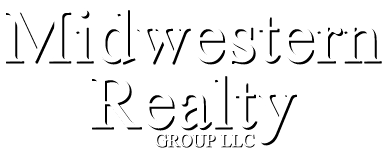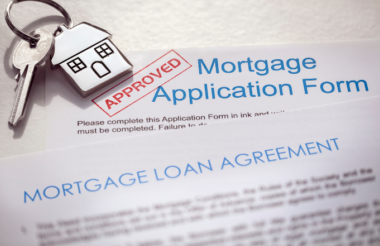What to Look for in a Mortgage Lender
Buying a home is one of the most satisfying accomplishments an individual can ever make. A place to call home is the pride of every family. However, getting the finances to buy a whole is not easy for most people without the help of a mortgage lender.
To receive the best mortgage, you must look for a trusted mortgage lender who can advise on the right loan. A good mortgage lender should also be able to walk with you throughout your mortgage journey, which can last between 15 to 30 years.
But what do you look for in a reliable mortgage lender? If you’re planning to own a home through a mortgage, this guide is yours as we’ll delve deeper into what to look for in a mortgage lender.
What is a Mortgage Lender Exactly?
A mortgage lender is any financial institution that issues and underwrites home loans. These lenders have a given set of borrowing rules that help determine your creditworthiness and your ability to repay the loan.
A mortgage lender also sets your loan’s interest rates, repayment period, and terms. Most mortgage lenders offer their services for a fee.
How Do You Choose a Lender?
Since there are different types of mortgage lenders, it’s best to shop around to find the best. Ask about each lender’s loan terms, rates, insurance, closing costs, and down payment requirements.
You also need to work on your credit score to increase your chances of getting a mortgage at a low-interest rate. Make sure you also set a budget and do thorough research before settling on the best mortgage lender.
Types of Mortgage Lenders
The different types of mortgage lenders you can opt for include:
Conventional Banks
Conventional banks issue mortgage loans not guaranteed or insured by the government. These mortgages are cheaper than FHA loans. However, they’re challenging to get. Conventional banks issue mortgage loans directly to borrowers and are much stricter.
Credit Unions
Another type of mortgage lender that offers loans directly to the borrower is the credit union. You can get a credit union mortgage if you’re a credit union member.
This type of mortgage makes your lender pay the mortgage directly to the seller. But you must make agreed installment payments to the lender. Credit union mortgages attract lower rates and fees.
Nonbank Mortgage Lenders
Nonbank mortgage lenders offer loans digitally without initial fees. Most people prefer it because it allows individuals to access mortgages faster and at more affordable rates. Some online lenders also have apps where you can apply for and manage your loan, which is a good time saver.
Mortgage Brokers
Mortgage brokers work as middlemen between borrowers and lenders. Brokers work for a fee that is a small percentage of the mortgage loan, and the lender pays for this. However, the lender includes the percentage in your mortgage. Mortgage brokers do the shopping around for you and find you the best loan for your situation, but again it is for a fee.
Mortgage Marketplaces
A mortgage marketplace is a common transaction ground for borrowers and lenders. Marketplaces are divided into two. The primary market is where borrowers receive new mortgage loans or refinancing. But the secondary market is where financial institutions trade existing mortgages amongst themselves.
What Type of Mortgage Would be Best for You?
Before settling on any of the mortgages, it’s best to understand that not all are good for you. Some of the best types of mortgages for you are:
VA Loans
VA loans are a type of government-backed loan that the Veterans Affairs Department insures. The best thing about this type of loan is that it allows you to get a mortgage at a lower interest rate with no downpayment. However, you must meet the armed forces service requirement to get a VA loan.
FHA Loans
Another best type of mortgage for you is the FHA loan. This type of loan is insured by the Federal Housing Administration, enabling you to get a home with a low credit score (580). But you must make a 3.5% downpayment or a 10% down and a credit score of 500.
Conventional Loans
Conventional loans are more common and have stricter credit score regulations with debt to income (DTI) ratio. It’s one of your best loans since it requires a 3% down to buy a home. But you need a minimum credit score of 620 and pay at a lower interest rate.
Jumbo Loans
You can opt for a jumbo loan to help buy a high-value property. It’s usually more than the conforming loan limits of your area, and their interest rates are the same as those of conforming loans. However, it’s more difficult to qualify for this type of loan as it requires a higher credit score and a large down payment.
Go Through Multiple Lenders and Compare
The best way to identify the right mortgage lender for buying a home is through multiple lenders. Research different lenders and compare their:
Interest Rates
Some mortgage lenders have higher interest rates than others. It’s advisable to go for a lender with low-interest rates to avoid paying more. Talk to the lenders, know their loan programs, and calculate the interest rates. Also, show them your credit score and the type of home you’re looking for, as these affect the rates.
Fees
Ask for the fees the mortgage lender will charge you for the service, as most mortgage deals attract at least one type of fee. Remember, you must also pay for other closing costs, including third-party fees like the real estate attorney, application fee, and credit report fee. The fees range from 3% to 6% of the loan amount and depend on your loan type, estate, and the lender you opt for.
Down Payment and Mortgage Insurance
It’s also advisable to research the lender’s downpayment, which determines the type of mortgage insurance you can pay for. As a buyer, you can pay for private mortgage insurance (PMI) if you make a down payment of less than 20% of the home’s purchase price.
However, the PMI only protects the lender instead of the buyer. But you can also pay for other homeowners’ insurance to protect your property.
If you don’t want to pay for mortgage insurance, opt for some government-backed mortgages like VA loans. Alternatively, you can research lenders that waive PMI for borrowers with less than a 20% down payment.
However, it’s possible to avoid mortgage insurance by paying more than 20% down or working with a lender offering loans with paid PMI.
The Bottom Line on a Mortgage Lender
If you’re looking forward to realizing your dream of becoming a homeowner, make sure you look for a reliable mortgage lender and start your journey. A good mortgage lender will tell you their interest rates, down payment, mortgage insurance, and fees.
If you need expert help finding a mortgage and buying a home, we’re here to help. Contact us for guidance when buying a home, and let us connect you with reliable lenders that we have worked with for years and that you can trust.


